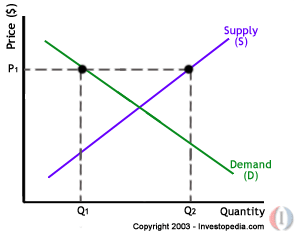I reluctantly recommend this book if you want to start a business, mostly due to the strong value chapter. I think the book succeeded in its goal on educating readers about the universal fundamentals of business, but you’ll probably need a bit more in applying them.Roosh doesn't realize that it is the subject that is lacking not necessarily the book.
I happen to have a business degree and can give you all of what I learned in one post.
Accounting
There are such things as a balance sheet, an income statement, and a statement of cash flows. They work together to explain, in numbers, a company.
There are lots of accounting laws; try not to break too many.
GAAP is an acronym for the standards by which the financial statements (see first paragraph) are laid out.
Human Resources
There are lots of labor laws. Lots, and lots, and lots, and lots of labor laws. Try not to break too many.
Marketing
Best explained by examples:
If you are going to sell something in a new place, check to make sure that the translated name of your product isn't something like "big toilet" in the new language.
If you want to sell your product to old people, then don't advertise on cartoon network.
If you sell car parts, then don't advertise in a cooking magazine.
Operations
Hire engineers and chemists, people which actual knowledge, not possessors of business degrees. (Not covered in school.)
Economics
I like the subject but don't remember anything that I learned in the college economics classes. Although 2 of my 3 economics teachers wrote their own text books, which were awful.
I read Atlas Shrugged and The Fountainhead while in these classes.
What you may want to know are the basics of supply and demand, and the appropriate graph.

Miscellaneous
There are such things as business plans and marketing plans. You will need one to get a loan from the bank.
(Not covered in school: even the best business plan won't get you a bank loan until you first get started with your business and have been in operation for a few months, or years. Lots and lots of my classmates would have been much less confused about what it was the teachers had wanted us to do had they been told the previous sentence.)
What you actually need to know to start a business:
- Scrounge whatever money you can, from wherever you can
- Pick a business that interests you
- Hire the best people that you can, and let them work
- Hire an accountant so that you meet the accounting laws
- So long as your monthly income exceeds your expenditures you will be in good shape
- A business plan is useless until you have the business running
If you want to read a book, then How to Get Rich by Felix Dennis is not bad.
If you've read this post through, then you too have the knowledge of a business degree. And an MBA is more of the same.
There's a reason I have my own idea for a business school.
Also, ignore mission statements. MBA's and business school love mission statements and I am now convinced that the more politically corrupt the mission statement of a company the more devoid of real leadership it is.
ReplyDeletecorrect, I meant to say correct not corrupt.
Delete